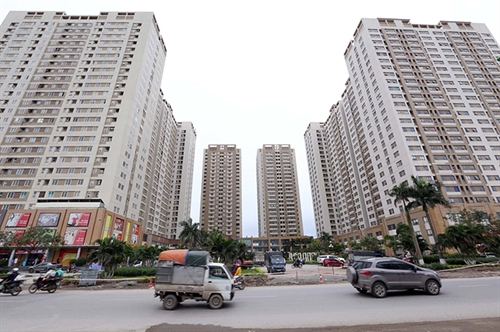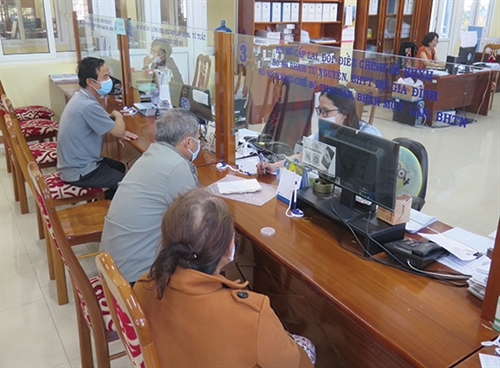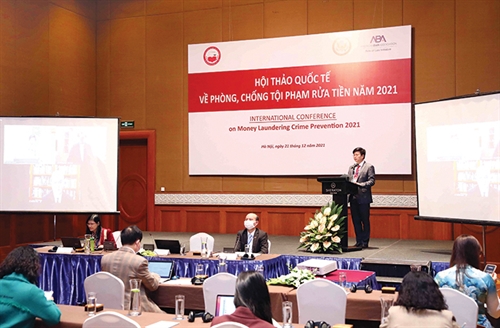The Ministry of Construction (MOC) recently submitted to the Government a set of policy options for revision of the 2014 Housing Law of which the most controversy one is the idea of setting a definite term for apartment ownership.
Specifically, the MOC suggested two options for determining the duration of apartment ownership: (i) based on the use term of the land plot on which the apartment building is built in accordance with the land law and (ii) according to the life expectancy of the apartment building, i.e., from 50 years to 70 years as prescribed in the construction law.
It is not difficult to understand why the MOC’s proposal immediately stirred up public concern. According to official statistics, for the time being, there is a total of 4,422 apartment buildings nationwide and this number is incrementally increased together with the blooming of commercial housing projects, given the country’s ongoing rapid urbanization process. Hence, the MOC’s proposal will affect numerous subjects, ranging from real estate developers to home purchasers.
 |
| Tan Tay Do apartment complex in Dan Phuong district, Hanoi__Photo: Anh Tuan/VNA |
Reasons for setting a time limit for apartment ownership
Explaining to the online newspaper VietNamNet about the reasons why the MOC proposed setting a time limit for apartment ownership, a representative from the Ministry’s Housing and Real Estate Market Management Agency said the recommendation was made with a view to meeting requirements for management and use of condominiums and addressing difficulties in implementation of current policies on re-construction of degraded apartment buildings.
The idea of determining the apartment ownership term based on the life expectancy of apartment buildings stems from the characteristics of such buildings which are large-scale works with numerous users. Given the fact that all construction works, apartment buildings are no exceptions, will be degraded over time, posing threats to the safety of property and humans, definite-term apartment ownership would facilitate competent authorities’ handling of these buildings when their lifespans run out.
For the time being, competent authorities remain unable to find out feasible solutions for dealing with degraded apartment buildings, even in case such buildings are deteriorated to an extent that they are likely to affect the life and health of dwellers. The reason is simple: People believe that because apartment ownership is permanent, it is they, apartment owners, who have the right to decide on the repair or demolishment of their apartments, although the civil law clearly provides that the ownership and use of property by their owners must not affect the property of others, especially in case of adjacent real estate. This bottleneck will be removed if the term of apartment ownership coincides with the lifespan of apartment buildings. Then, when the use duration of a building expires, authorities will inspect the remaining quality of the building and, if finding it is no longer usable, be free to decide to repair the building or to dismantle and rebuilt it. The [tentative] regulation also conforms to the civil law which says property ownership will terminate when the property is destroyed or no longer exists, the MOC justified.
Another motive for the MOC’s proposal is the hope that it would help cool down the housing market. Once the term of ownership of apartments is limited, their selling prices will reduce and thereby facilitate low- and middle-income earners’ access to affordable housing.
The MOC’s idea was supported by not a few industry insiders.
“This would be an option to solve the problem of renovating or rebuilding condominiums at the end of their use duration without having to deal with ground clearance,” Phan Cong Chanh, a real estate expert, was quoted by the Việt Nam News daily as saying.
Meanwhile, Nguyen Van Dinh, Vice Chairman and Secretary General of the Vietnam Association of Realtors, shared the MOC’s belief that the proposal would be considered a solution for dealing with property speculation and directing capital flows into manufacturing industries instead.
“If the proposal of a limited-term apartment building is accepted, the psychology of apartment speculation will slow down. At that time, the apartment becomes a consumer asset, not a savings asset, and apartment buyers will be hesitant because using the house is a liability,” he told local media.
“On the positive side, cheaper apartments are an opportunity for low-income people to buy an apartment that is suitable for their family’s finances,” Dinh said, adding that the current price of apartments was too high because home buyers have to bear a large amount of land-related costs.
Worries about the proposal’s legality and practical impacts
The Ho Chi Minh City Real Estate Association (HoREA), in a report reviewing the 2014 Housing Law and contributing opinions on the draft of the new Housing Law, states that the current laws on housing and land recognize lawful house ownership associated with stable and long-term land use rights. Hence, “the proposal is not suitable, especially in case apartment buildings are built on stable and long-term residential land and apartment owners have acquired the right to use the land areas under the buildings in a stable and long-term manner,” the HoREA justifies.
“The MOC seemingly misunderstands the matter of “ownership”. Even in case the property is destroyed, that is to say it no longer exists, the property is still under the ownership of its owner,” lawyer Tran Duc Phuong from the Ho Chi Minh City Bar Association said in a seminar held by the e-newspaper VnEconomy to collect expert opinions on the issue, stressing that Vietnam’s law has no provision on “termed ownership”.
“An apartment owner still holds ownership over his apartment, even when the apartment is no longer usable. This is similar to the case in which a person has the right to use a land plot, if he does not use such land plot, he will still retain the land use rights”, Phuong analyzed, adding that the MOC’s proposal is inconsistent with the civil law.
Other real estate experts seem to doubt about the positive impacts of the new policy on the housing market.
Su Ngoc Khuong, senior director at real estate consultancy Savills Vietnam, said limited-term apartment ownership would probably move people from condominiums to independent houses, driving house prices even higher and affecting liquidity.
Meanwhile, Vo Hong Thang, Research&Development Director of DKRA Vietnam, said at the dialogue held by VnEconomy that the proposal could hardly help reduce apartment prices in the short run but would negatively affect the market. This is because apartment prices depend on several input elements such as land-related costs and raw material expenses. Against the backdrop of complicated developments in the world market, the prices of input materials like iron, steel, etc., have increased by 10-20 percent on average, compared to the figures at the end of 2021. Hence, even if costs for acquiring land use rights are reduced, apartment prices cannot immediately decrease.
Agreeing with Thang, Director of CBRE Vietnam’s Residential Development Division Vo Huynh Tuan Kiet also warned the proposal would create psychological uncertainties among house buyers.
“The age of a [construction] work does not have much meaning. The lifespan of 50 years or 70 years prescribed for an apartment building is just a theoretical number whereas the durability of the work depends on not only its construction design and materials but also the maintenance process. Some apartment buildings are expected to be usable for 70 years, but if they are not properly maintained, they will deteriorate after 30 years, while well-maintained ones can last for more than 100 years”, he said.
According to experts, the proposal should only be approved after wide consultations are held and if it receives support from a majority of the public.-









